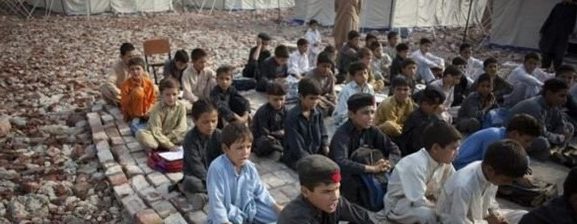By: Jalal Uddin Kakar
The alarming condition of education in Pakistan has come under scrutiny once more. On Wednesday, the Education Task Force convened for the first time. It discovered a great deal of difficulty to overcome. The statistics are still dismal in spite of numerous attempts by the government and foreign allies. Our literacy rate is a pitiful 60 percent, and there are 25 million youngsters who are not in school. The government has now suggested creating an Rs75 billion fund to address the out-of-school youth issue and enhance technical education and teacher preparation. The objective of achieving a 90% literacy rate by 2030 and enrolling the majority of these children in the education system is ambitious and admirable. However, these steps alone are insufficient to address the scope of the problem.
Several gaps remain unfilled. To begin, while the government’s emphasis on technical and vocational education is a positive step forward, the quality of basic education remains inadequate. Children require more than just enrollment; they require access to a high-quality education that will prepare them for critical thinking and new technical competencies.
A lack of basic infrastructure, such as school electricity and adequate teacher-student ratios, impedes significant advancement. Second, the devolution of education to the provinces under the 18th Amendment has resulted in regional inequities. To guarantee consistent growth across the country, the federal and provincial governments must work together more closely. Furthermore, addressing socioeconomic impediments that keep children out of school, such as poverty and gender inequity, must be a key component of the government’s education plan. Without continued investment and new solutions, Pakistan risks falling farther behind in its educational ambitions. The time for rhetoric is over. Pakistan requires practical, well-researched programs that not only address urgent difficulties but also create a robust, forward-thinking education system capable of preparing its youth for the demand of modern world.
The writer is a student of public administration at Quaid-i-Azam University, Islamabad.

